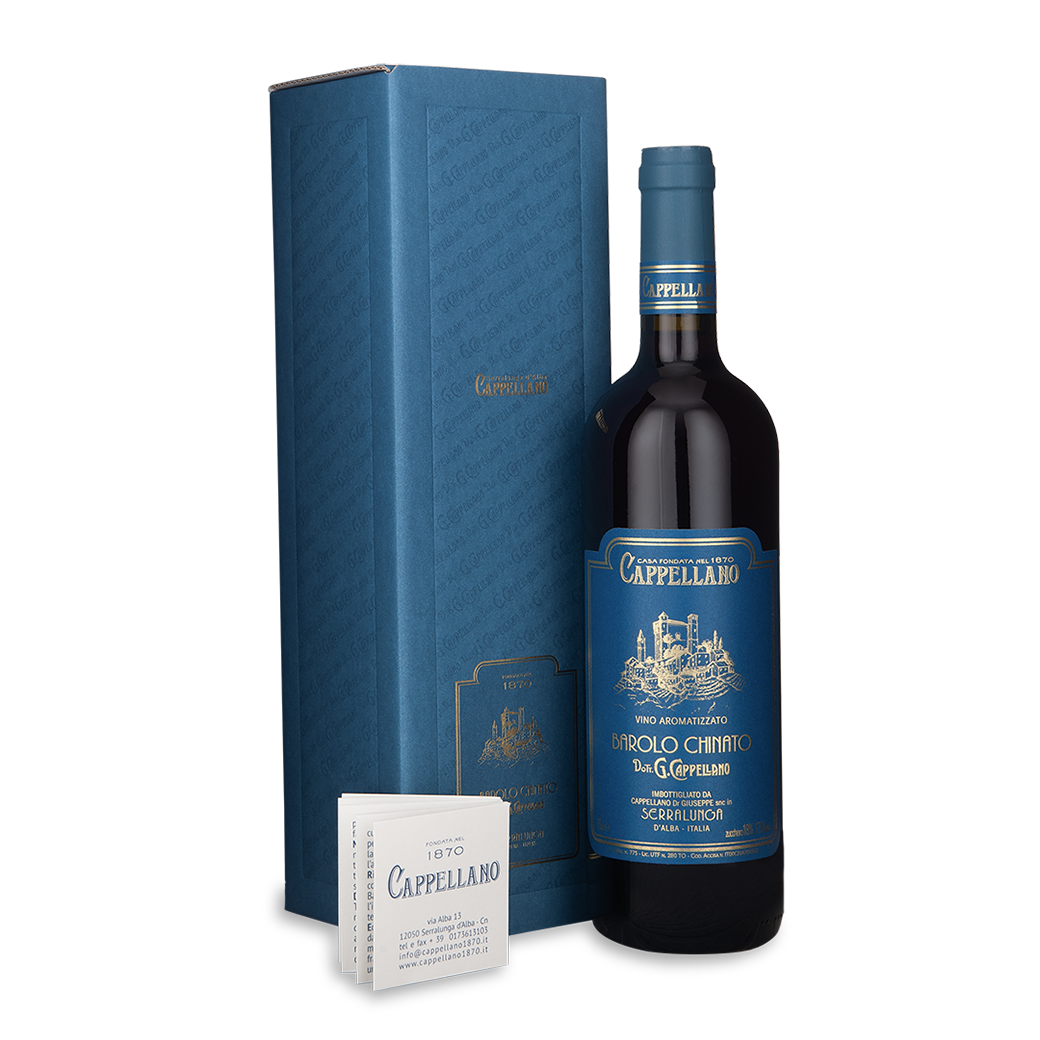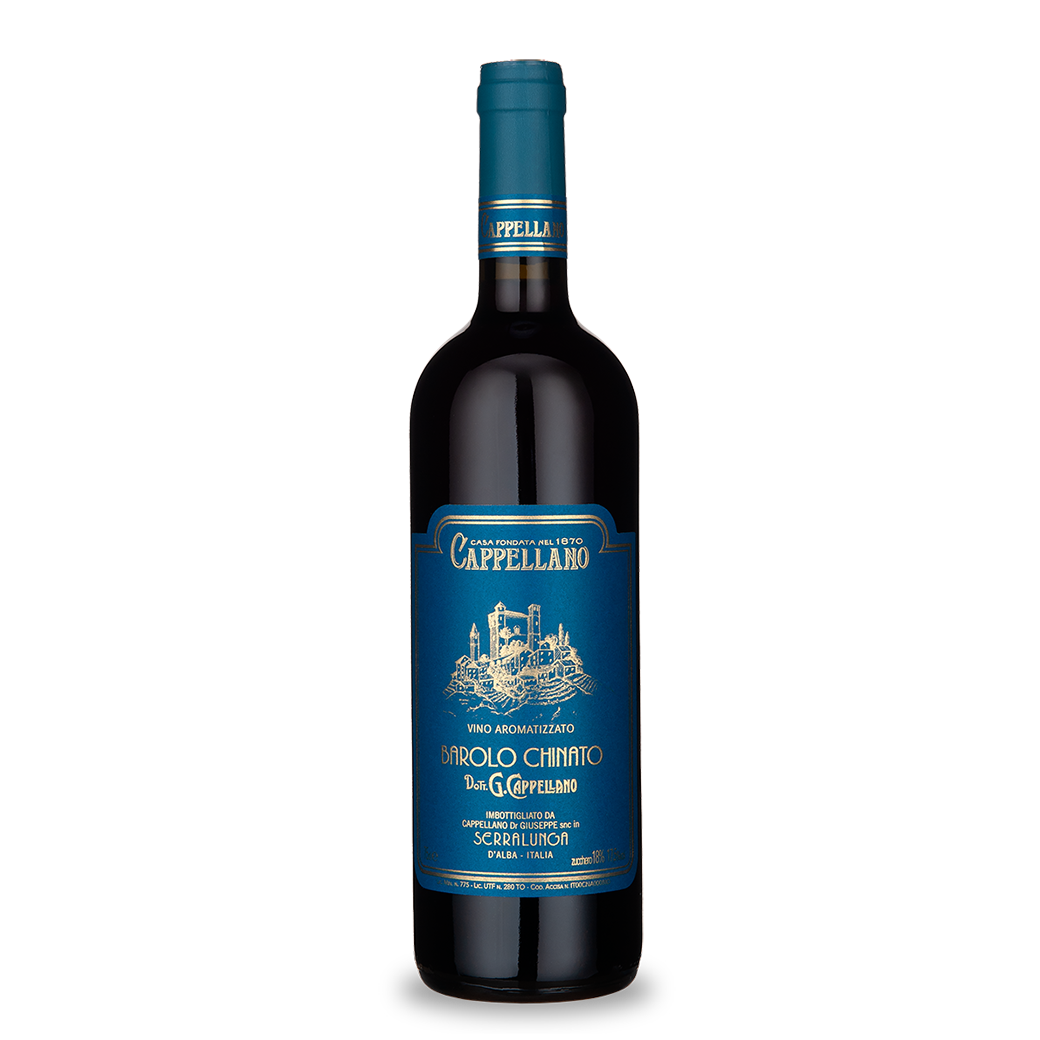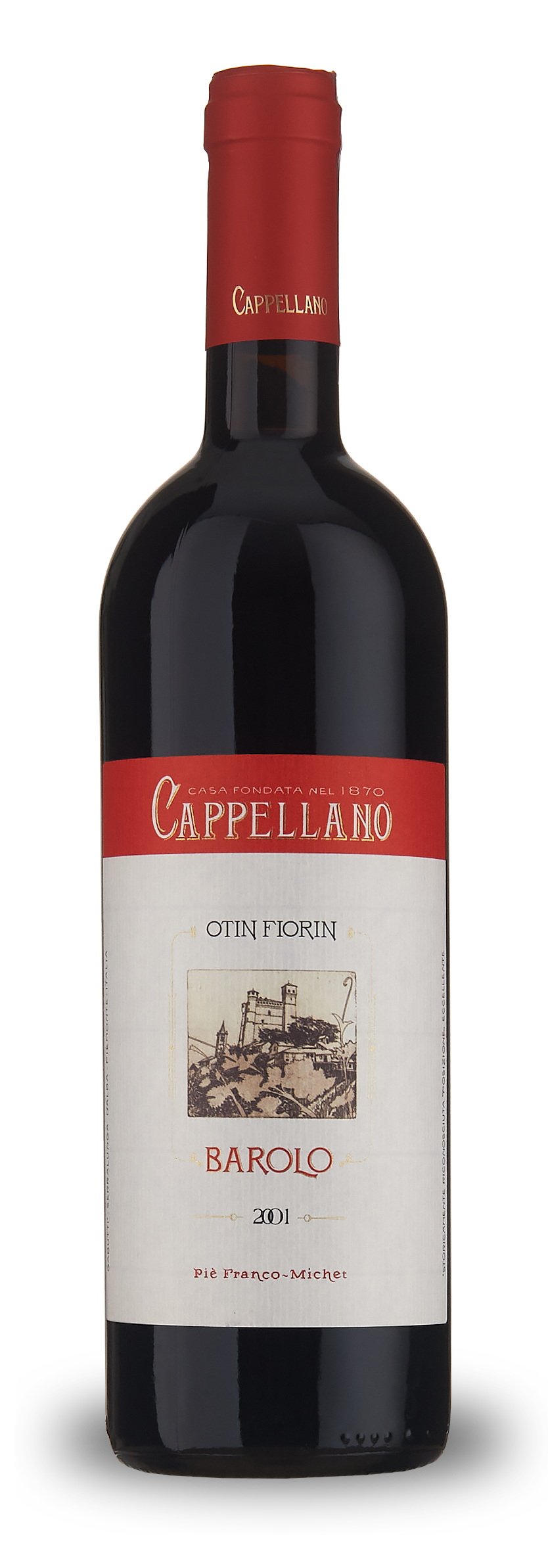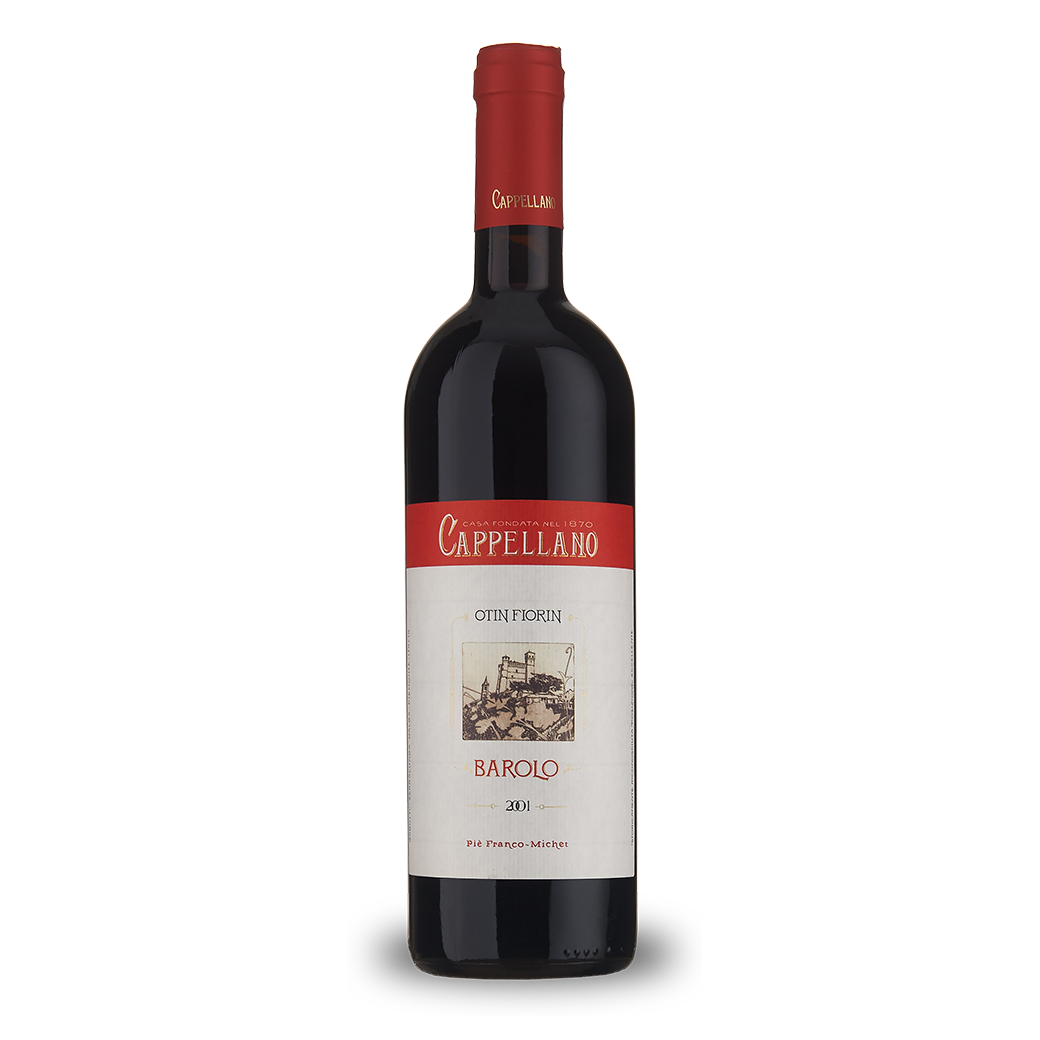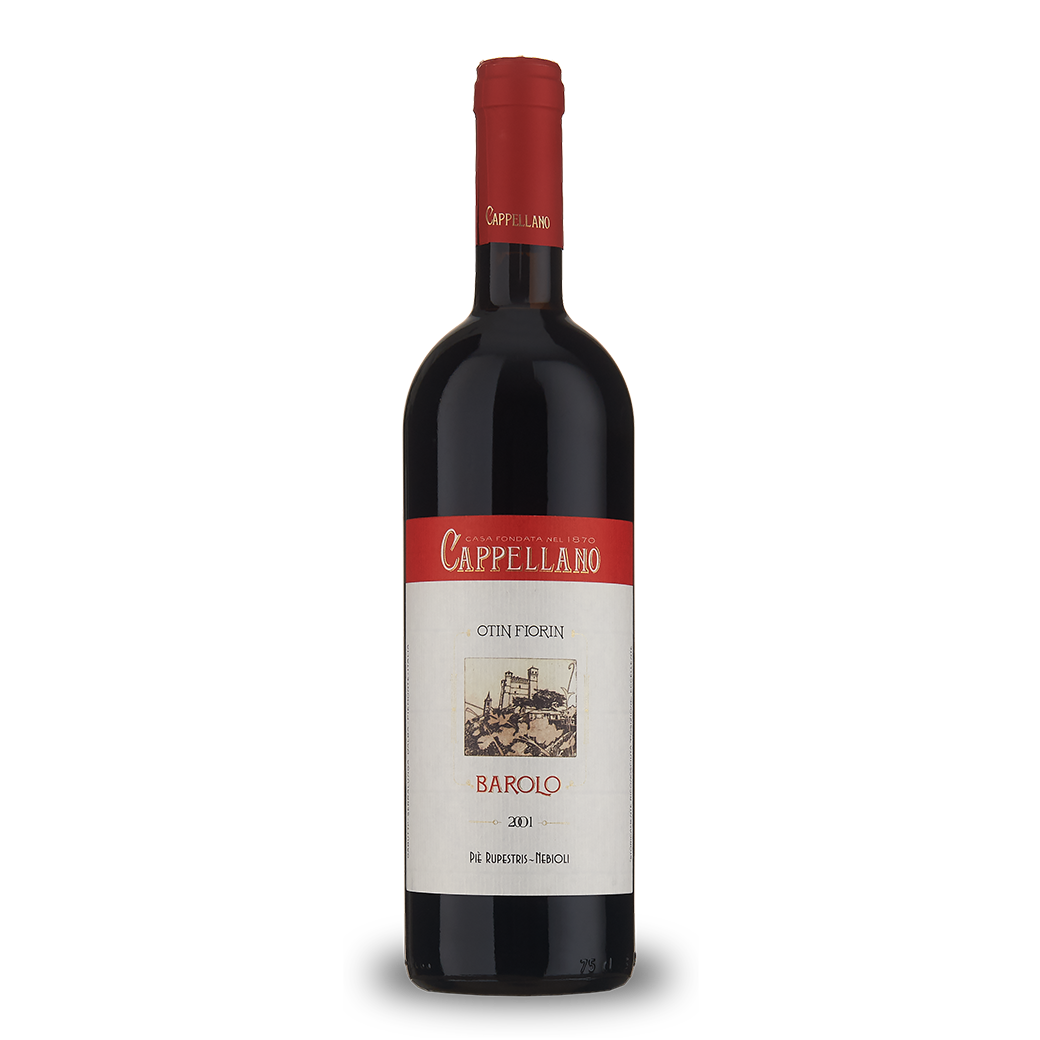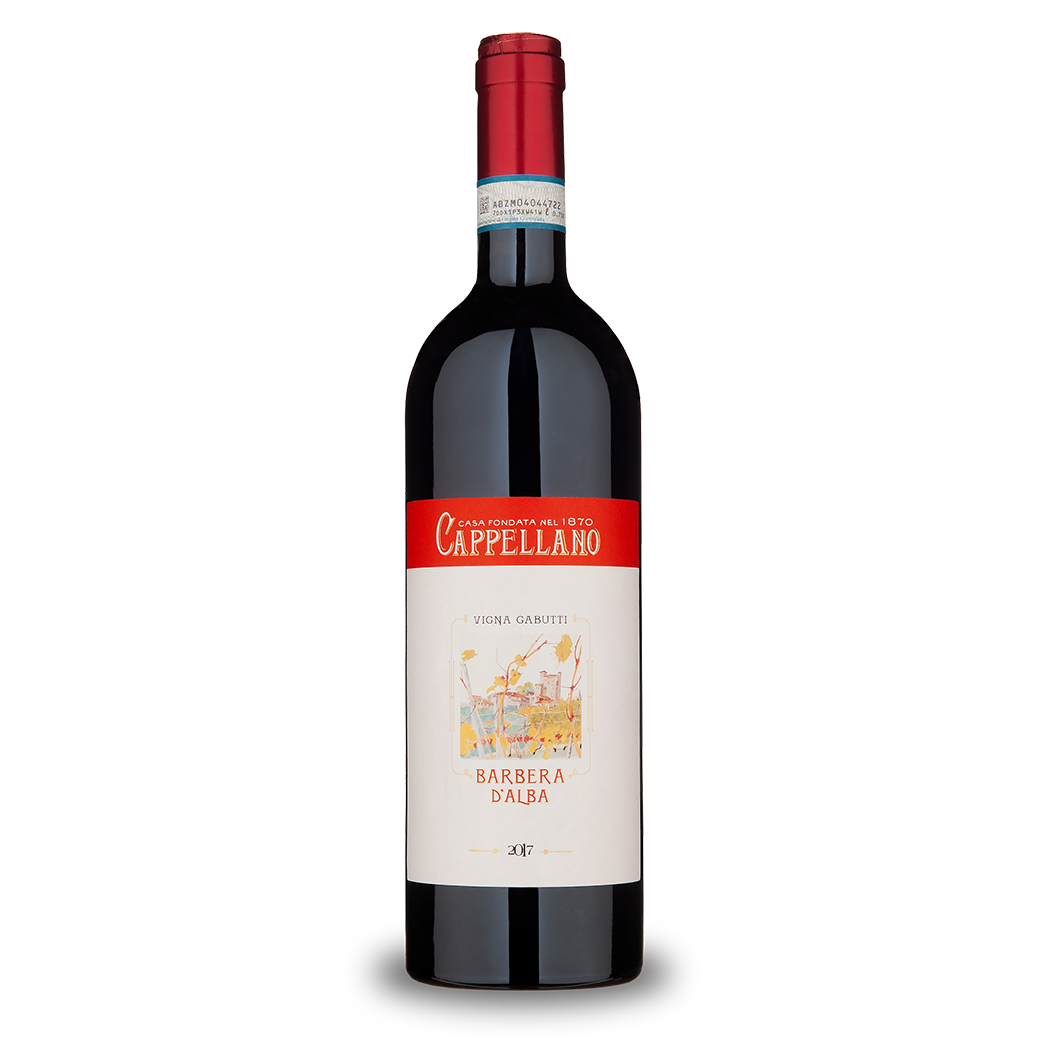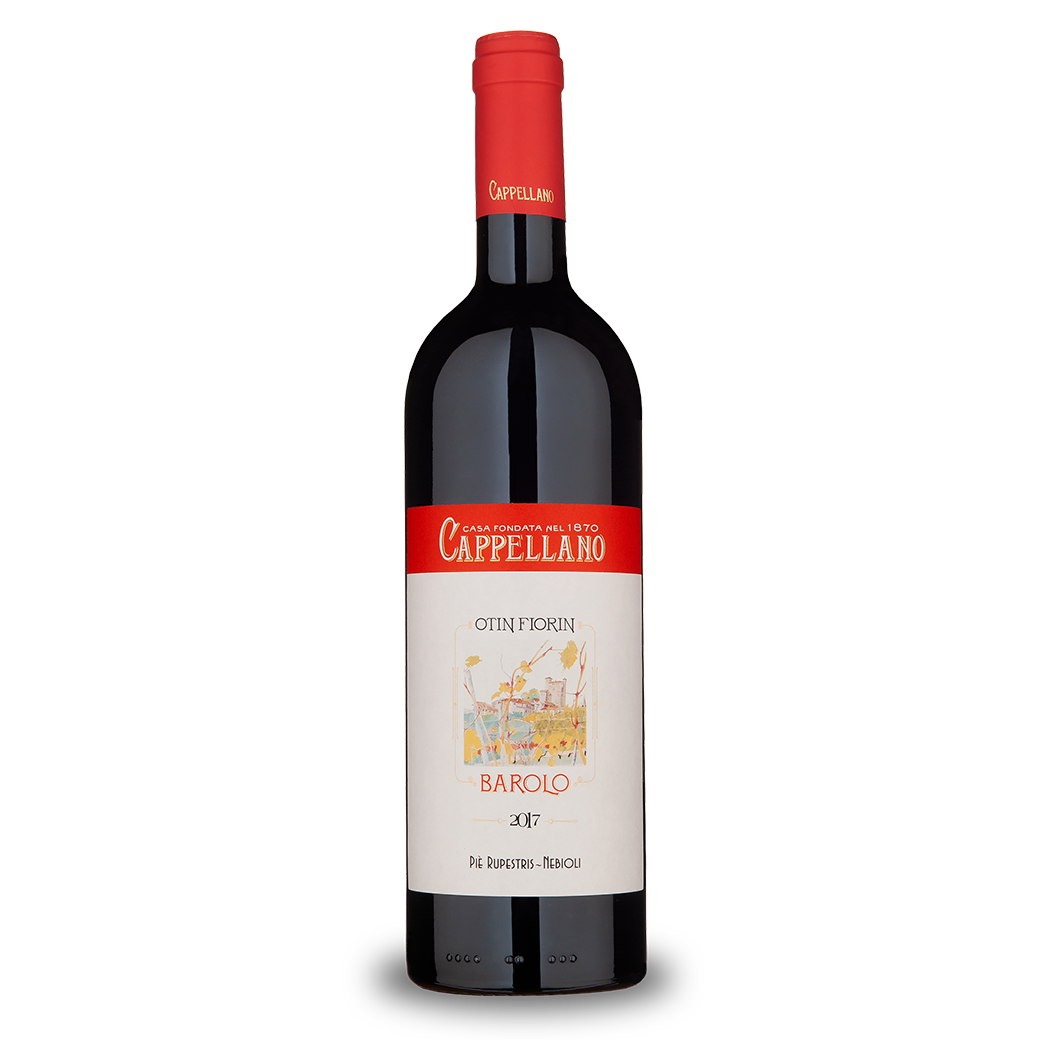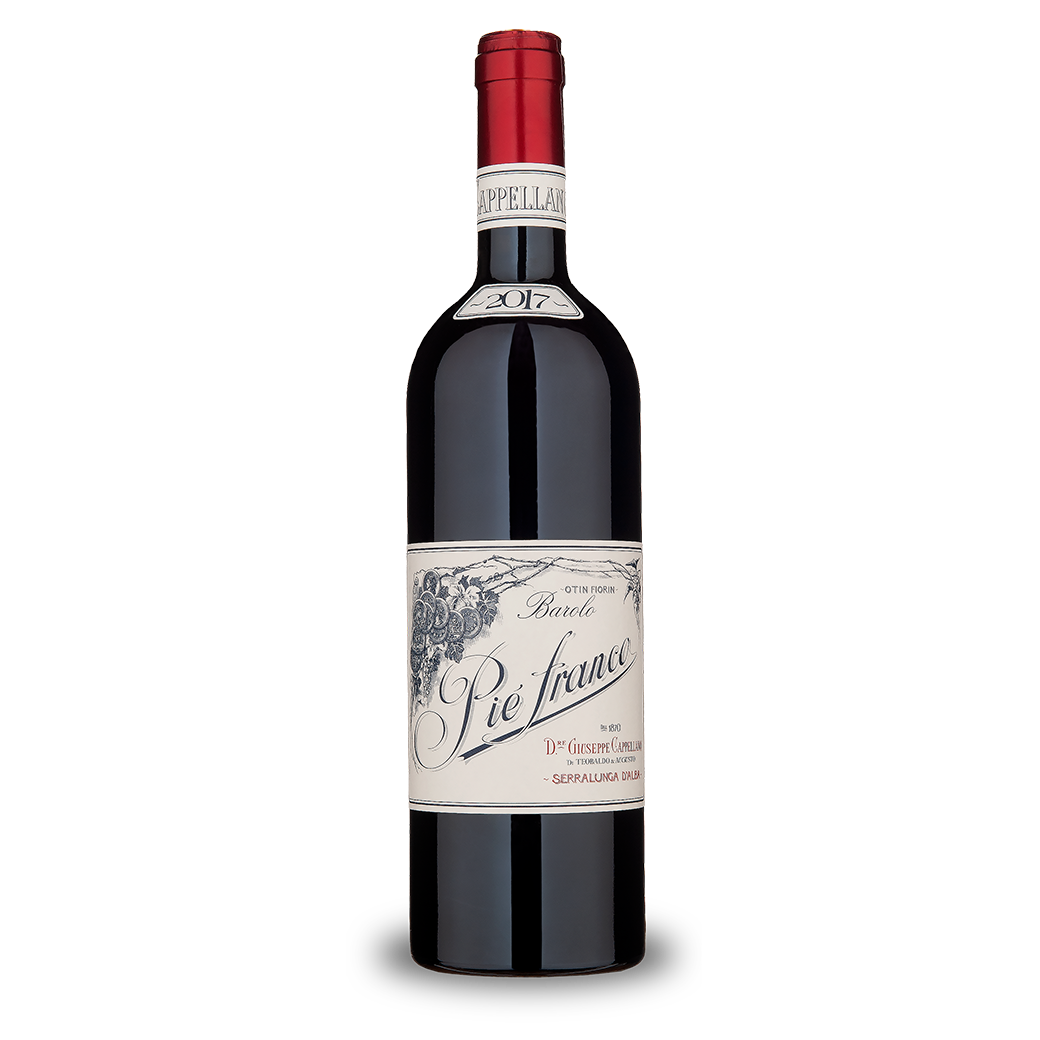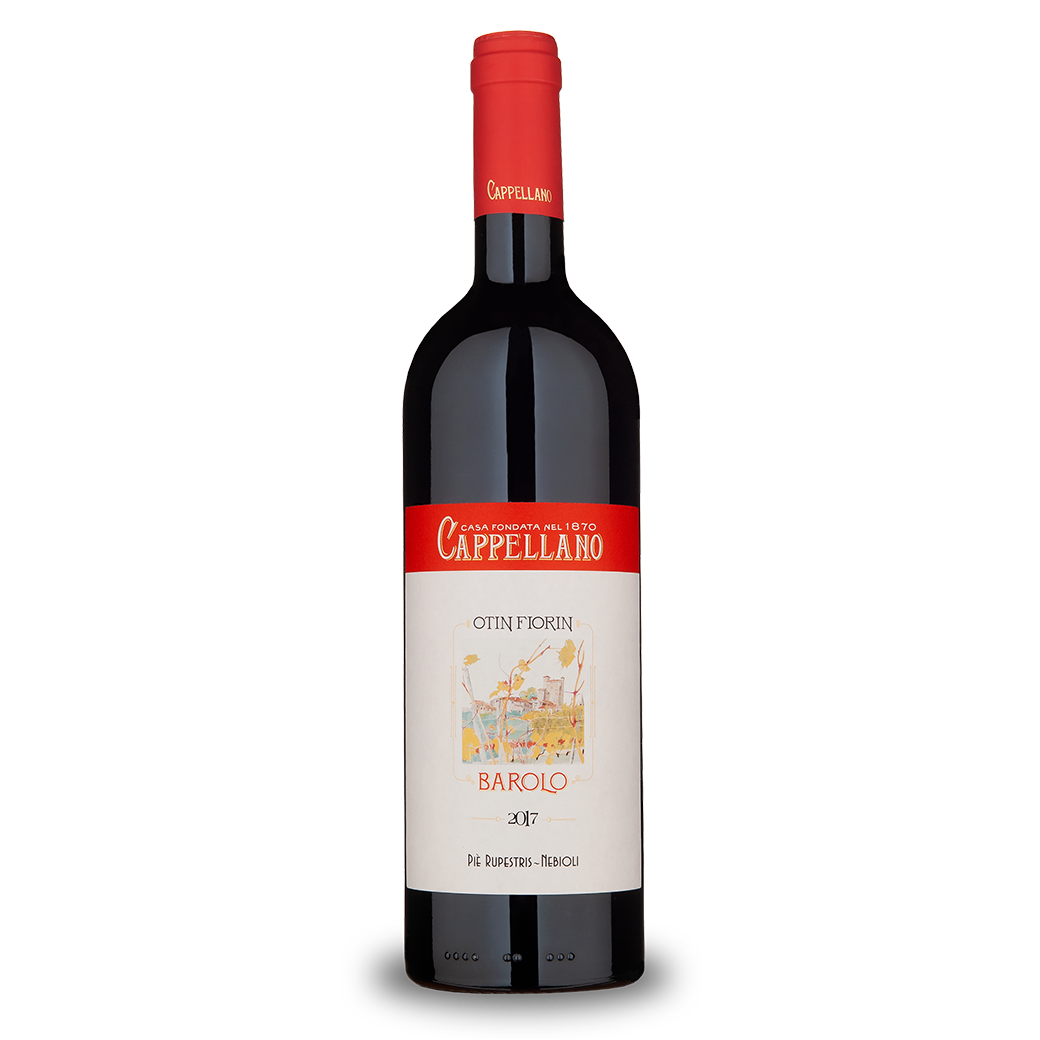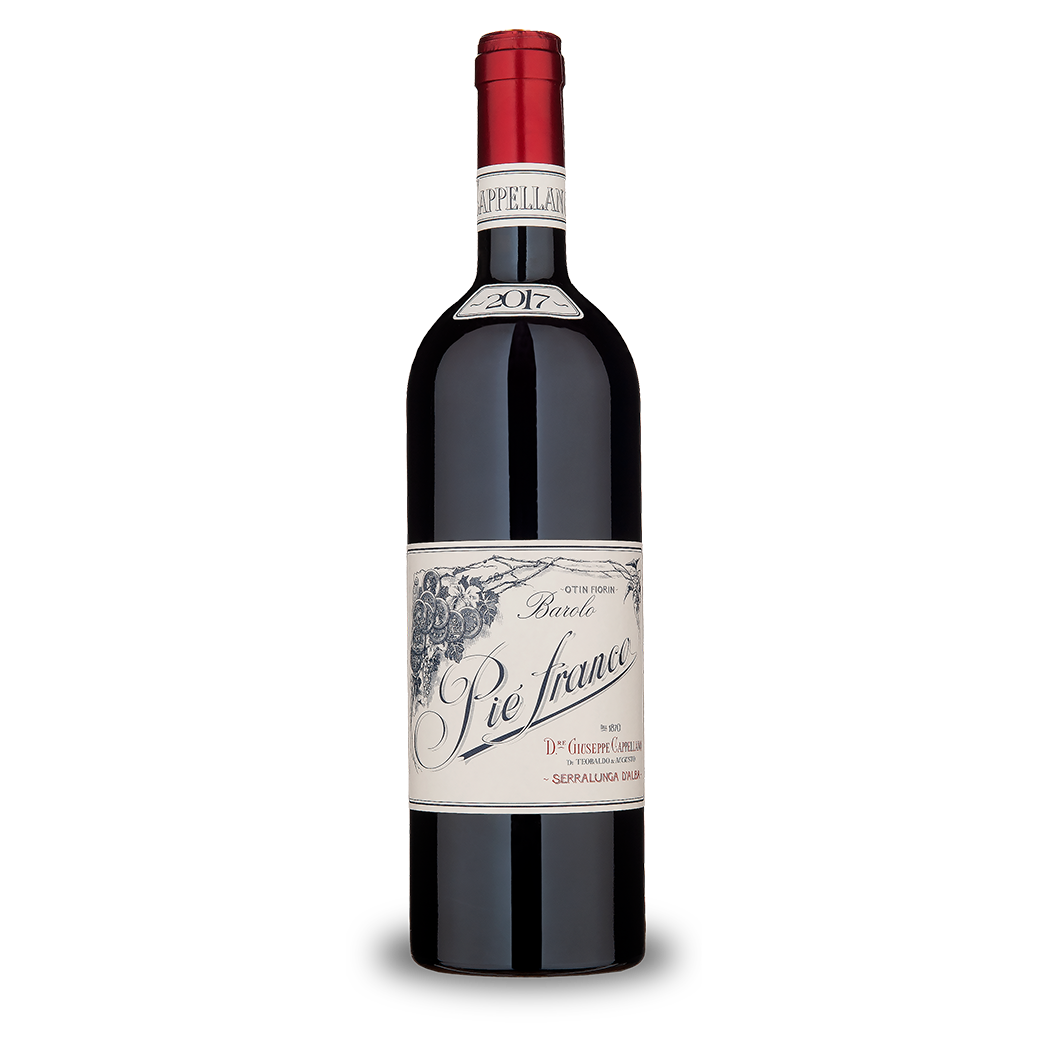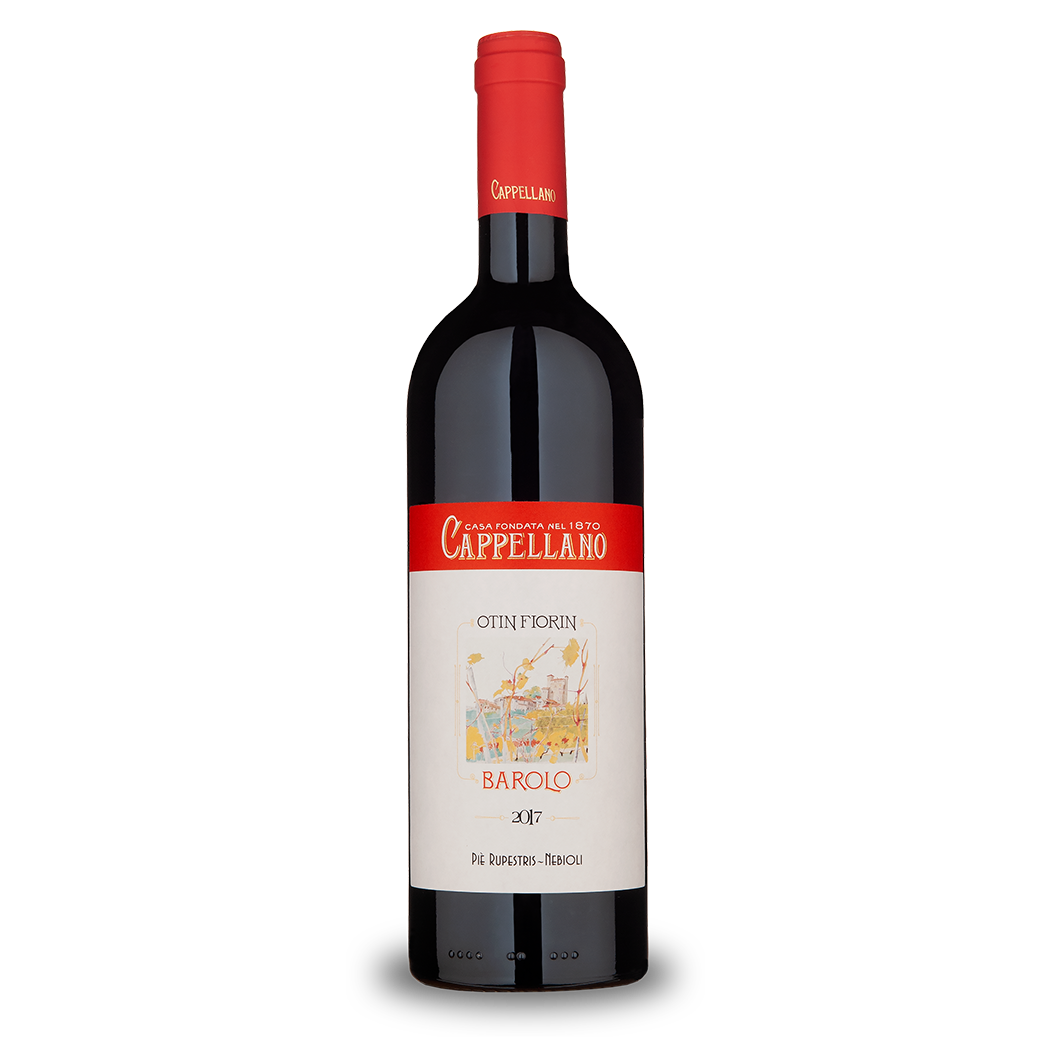Dott. G. Cappellano

The story of this vineyard begins with the notary Filippo Cappellano, a rich landowner with a passion for wine, who, at the age of 48, founded the company, bringing together 150 giornate piemontesi (corresponding to about 60 hectares) into one estate of farmland. When he died, his son Giovanni, an enologist, succeeded him in managing the company; he renovated the vineyard, and he built two hotels in Alba and in Serralunga, with all the best facilities available for the tourism of Liguria and Piemonte. He created the famous “grape cure” in Serralunga, establishing a transport service by horse and carriage from the train station of Alba.
In 1889, at the Paris Universal Exhibition, Giovanni Cappellano's vineyard won a bronze medal. My perceptive great-grandfather probably went to France in order to corner its market, since French grapevines in those years had already been attacked by the terrible phylloxera. Giuseppe, Giovanni’s brother, instead graduated in pharmacy, choosing the industrial way of wine- pharmaceutical production. He created in that period concentrated musts, used for their healing effects, and the first grape jellies (winning a gold medal at the international exhibition of wine products). Furthermore he invented the famous Barolo Chinato. The industrial adventure of Giuseppe ended soon: in 1912 his brother Giovanni died from a tropical fever contracted in Tunisia, where he had gone in order to look for some species of vines resistant to phylloxera, so Giuseppe chose to take care of the family company.
Francesco Augusto Cappellano, an oenologist, followed his ancestors’ footsteps in passing on the baton to his son Teobaldo, my father, at the end of the 1960s. After his childhood in Eritrea, Teobaldo took the helm of the company and changed it dramatically: much smaller in size and highest quality control, following very specific guidelines.
On the one side, a renewed attention to the territory in terms of local commitment and dedication. In those years, the Langhe did not have today’s reputation. They were hard lands and Teobaldo’s commitment was to promote and defend them with an active and tireless participation in Consorzio del Barolo e Barbaresco and as president of Enoteca Regionale del Barolo. On the other side, the recent visibility and financial difficulties of the winemakers made the prospects of an industrial approach to viticolture way too attractive. Teobaldo was among the first to vindicate the need to re-think winemaking, rediscovering the harmony with the ancestral activity of the farmers and taking on the responsibilities of environmental protection. In the final years of his life, he was president of the association Vini Veri (“True Wines”), in the frontline of the promotion of a natural approach to winemaking, and he was especially active in the creation of a network of responsible producers, oriented towards research and mutual support. The quality-oriented approach meant that renewed attention was given to Barolo Chinato.
The 1960s was not a good period because of the proliferation of low-quality competition. Teobaldo stubbornly kept believing in the handwritten recipe of his uncle Giuseppe, and received from his father Francesco in a sealed envelope.
With his characteristic tact and perseverance, he long fought against the prejudices which afflicted Barolo Chinato. After years of struggle, he succeeded in his intent to reinstate the elixir to the prestige it is entitled to and which boasts now. He accomplished this by jealously protecting, in bad times and in good times, his ancestor’s recipe and the product’s artisanal nature.
Augusto Cappellano was still a child when he received the honour and mission to carry on the history of Barolo Chinato Cappellano through the teaching of the recipe, the techniques, and the wise practices. Left free to pursue his inclinations besides winemaking, he spent much of his youth between the mortar and chemistry studies. Once he finally started an academic career, something changed when he contemplated a sunset through the vineyards. Something was not quite right, and he realised that his nature and sense of belonging were driving him back to the wine and the cellar.
“One has to be a bit crazy to choose to spend their life gazing up to the skies”, as his father Teobaldo used to say hinting at the preoccupations caused by bad weather, which mark the fate of a farmer... actually though, at the bottom of this sentence rightly lies a good dose of romanticism. Augusto is ‒ unfortunately ‒ a romantic his father and ‒ just like him ‒ he is no doubt a bit crazy.
The passing of Augusto Cappellano was an incredible loss and sufferance for all of the family and the company. Few were willing to bet that there was a future for them. As it turned out, the sleepless nights mourning on an irrecoverable loss have been their strength. They stood still and have changed a lot. They brought order to the creative chaos of the genius Baldo; they have systematised, restructured, perfected things. Like his father, Augusto believed that respect and protection of nature and environment make a fundamental difference. He is not compromising on quality when it comes to interventions in the vines or in the cellar, and he considers himself lucky to be able to combine the farmer’s wisdom and the technical and scientific knowledge of organic growing practices. This does not hinder, he believes, the honesty and organoleptic quality: for his challenge is to guide nature, to let nature express herself. He also believes that people always make a difference, that relations have to be cultivated and given proper value. This is a commitment which he owes to his happiness, to the memory of his father, and to the people around him.
PHILOSOPHY
During the years they have been sometimes added, for various reasons, to the ranks of the “traditionalists”. They believe that this definition is a limit only when it is associated with the deceptive term of “conservatives”. They do not reject it ‒ rather, they lay claim to it ‒ in its true meaning of delivery and transmission of lore and practices, indispensable values for progress and for that sort of “backwards evolution” Teobaldo loved to talk about.
In practice, these values translate into an activity respectful of the land and of its offerings: in the vineyard they work with an organic methodology (copper, sulphur in different ways, and no pesticides), in the cellar they limit the interventions to the minimum by reproducing exactly what the elder generations used to do, only with more refined tools.
The basic concept is that of ‘delicacy’, from the grapevine to the bottle: they prune with non-invasive techniques, they harvest with tools which preserve the integrity of the grapes, they stock their bottles in an underground cellar purposely built to guarantee the perfect ageing until shipping.
Winemakers Cappellano have often been associated with the concept of “revolution” ‒ quite an oxymoron if one thinks of the established renown as “traditionalists”. And yet, tradition and revolution are two sides of the same coin ‒ a revolutionary or nonconformist attitude seems to be inscribed in the genes of the Cappellano patriarchs.
A grandfather, Francesco, so stubborn as to leave the Langhe to set up a wine business in Africa (specifically in the former Italian colony of Eritrea).
A father, Baldo, who returned to Italy with his family and with the dream to restore the family vineyard from scratch. He purchased back a plot of land in one of the most prestigious crus in the Langhe ‒ Gabutti. He re-established the production of Barolo Chinato with the old recipe, and realised his father’s old dream of an ungrafted vineyard.
A bit crazy, dreamers, reckless. Visionary, brave, precursors. These words and many more were used about them, this ‒ and much more ‒ can be inferred from their family history, only briefly sketched here. These traits best characterise those personalities which bring about change and revolution. They like to believe that this tiny seed of folly, suggestive of a brighter future and of a dream worth fighting for, is now endemic and permeates them as well as all the wonderful people who have made the vineyard reach this day. They strongly believe that the right motivation, fuelled by a fire, is necessary to make life worth living. Call it a cause, call it utopia. This pursuit makes them happy and, hopefully, also active and productive parts of this world-system.
They would like to indulge with memories now because the term “anarchy” is inseparable from Teobaldo Cappellano. They grew up together with the vineyard, and both were grown by a free and responsible man. Free to express concepts and elaborate projects against the mainstream views; free from the human calling to follow the flock for the sake of comfort and safety. Responsible for he was always animated by unyielding respect for the others and by the innate attitude to side with the weak. Anarchy and sociability, freedom and responsibility. For a child as well as for a company, growing up in the union of the opposites means to put a philosophy into practice, to take it as a model beyond the mere theory. Augusto's father bequeathed to them a sort of anarchic thinking and independent attitude which prompted them to even question (or re-think) their own work, lest we fall into the trap of a diverse yet equally undesirable homologation. What remains, unforgettable, is an approach to life ‒ and to winemaking ‒ which signifies what really matters to them: it is unthinkable to follow a random dogma, in particular when it is nothing more than a momentary fashion. We are interested in the meaning. A good produce, the true expression of what the land and the season give, combined with the wisdom necessary to pursue harmony and pleasure. They are devoted to the ethics of land and man, they believe in humankind and in Nature, but they start from small to think big. Do not look for them on the big stages, rather expect to find us in uncommon places, in unexpected situations which may let us share a glass of wine and a part of the journey.

The story of this vineyard begins with the notary Filippo Cappellano, a rich landowner ...
Filters
Filters

